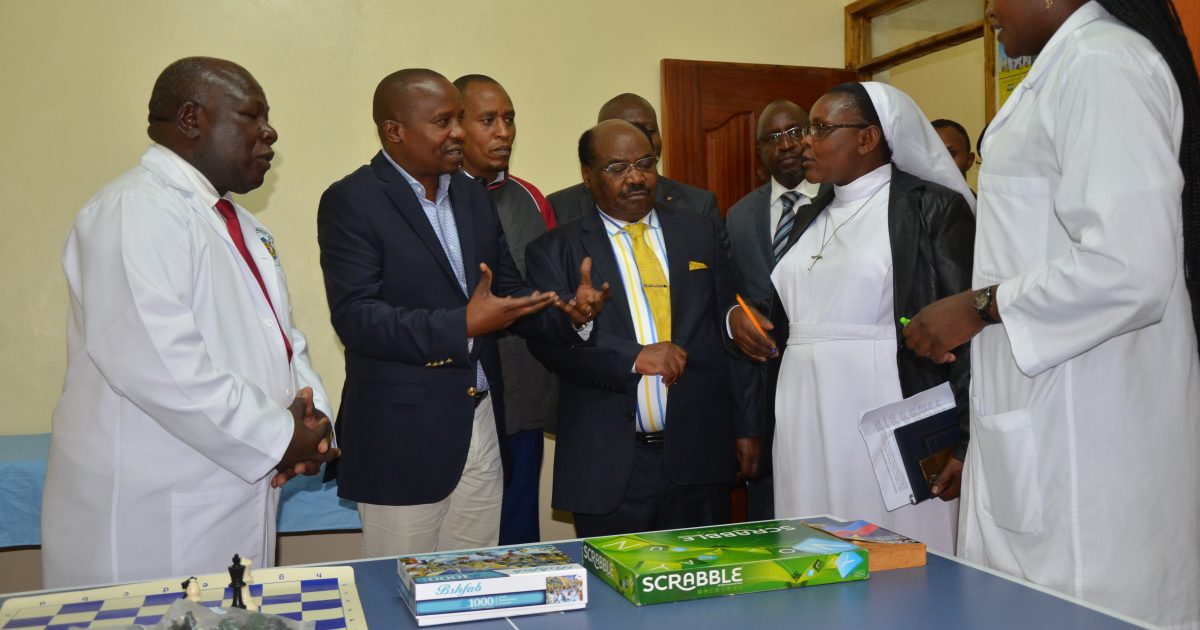Interior Cabinet Secretary, Prof Kithure Kindiki has revealed plans by the executive to introduce new legislation to empower the National Authority for the Campaign Against Drug and Alcohol Abuse (NACADA) to repress illicit alcohol and drug supply chain.
According to Prof. Kindiki, under the new legislations, NACADA will for the first time, have powers to deal with the manufacturers and suppliers of the killer brews and those involved in the distribution of drugs at source.
Currently, the authority’s sole mandate is limited to undertaking public education and awareness campaign against alcohol and drug abuse in schools, workplaces, colleges, universities, technical institutions, county governments, ministries, parastatals, national government administrative offices, faith-based institutions, Community Based Organizations, Non-governmental Organisations.
“We have brought legislation to strengthen the powers of NACADA to make sure we empower the entity to not only suppress the demand for drugs and alcohol, but also to increasingly suppress the supply chain. And therefore we want to destroy the manufacture and supply chain of alcohol and drugs as much as we are dealing with the demand for it. That legislation will go a long way in strengthening the fight against drug and alcohol abuse,” he said.
The Interior CS was speaking at the Ihururu rehabilitation and treatment centre in Tetu Nyeri County during the handing over ceremony of the accreditation certificate to the facility.
The 90 bed capacity facility opened its doors in September this year after an assessment by NACADA to ensure that it met all the set requirements to offer treatment for addiction. The centre is the only public facility in the county that is offering treatment for drugs and alcohol addiction. Currently, a total of 14 patients are admitted at the facility. During the event, the CS was accompanied by the Central Regional Commissioner, Fredrick Shisia, Nyeri Deputy Governor, Warui Kinaniri, Nyeri county commissioner, Pius Murugu, NACADA Chief Executive Officer Dr. Anthony Omerikwa and a host of NACADA board members.

The CS also noted that his ministry had identified drug abuse and illicit brews as the third biggest threat to the country’s security and called for partnership between county governments, NACADA and the national government to eradicate the vice.
Further, Prof. Kindiki championed the establishment of rehabilitation and treatment facilities in each of the 47 counties as one of the strategies of rescuing drug and alcohol addicts.
“We have mapped the National Security threats that are facing the country today and we have established, the order of priority, that terrorism remains the greatest threat to our country’s existence followed by armed banditry and thirdly, the sale and consumption of drugs, illicit alcohol and psychotropic substances which is threatening to wipe out an entire generation and will affect national security if we do not tackle it. That tells you that this institution is helping us resolve a very serious national security issue,” he said.
“I want to urge all other counties to follow the footsteps of Nyeri County because our goal as a government is to ensure that we have rehabilitation and treatment facilities in every county so that we can rescue our youth,” Kindiki added.
Additionally, the CS also pledged to continue improving the state of rehabilitation centre across the country, while also directing NACADA to set up post treatment support programmes, which he said would equip the recovered addicts with technical and business skills before they reintegrated into the society.
“I have instructed NACADA to partner with county governments to follow up recovered addicts from such facilities so that we help them and ensure they do not relapse to addiction.
Also, going forward, we will ensure that those who undergo treatment from such facilities should be supported to acquire skills as a way of helping them support themselves economically after their treatment,” said Prof. Kindiki.
By Wangari Mwangi and Samuel Maina





